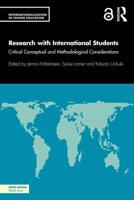Publisher's Synopsis
This study is a historical analysis of the 1978 Shaba Province Invasion in Zaire that culminated in three independent rescue missions to save expatriate mine workers from being killed as hostages. The study encompasses earlier crises in the country, tracing the origins and history of the Katangan Gendarmerie from its creation in 1960 to the invasion of 1978. For the first time, this study includes the entire Western response to the invasion: the initial airborne operation by the Zairian Army; the airborne assault by the French Foreign Legion's 2nd Parachute Regiment; and the air assault landing by the Belgian Paracommando Regiment. In doing so, it addresses the abortive Zairian airborne operation that set off the massacre of expatriate mine workers and forced a European reaction to the murders. Next the thesis examines the French response to the crisis through the use of primary source materials such as the operations orders, daily journals, and after action reports. The study then addresses the Belgian response to the crisis through the Belgian Army's official publications, the Belgian news media, and personal documents of the then Regimental operations officer. Overall, the thesis uses United States Department of State message traffic to document the actions taken during the invasion.










